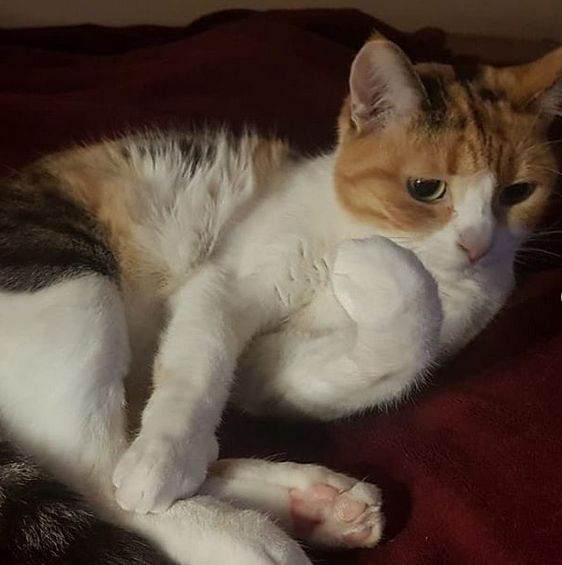Cat deworming is a process many of us pet owners will inevitably go through. The first question that may be running through your mind now is, “How do I know if my cat has worms?” And to think about it, the entire process doesn’t end with just the deworming; you will also have to think of what to do after cat deworming.
The practice of deworming cats is an essential component of preventative veterinary treatment. Consistent deworming of your cat will help protect your cat and your family from the dangers of parasites.
Additionally, it can help enhance your cat’s health, lower the chance of significant health problems, and stop the transmission of parasites to either other cats or humans.
There is a wide selection of dewormers available, and it is essential to consult your veterinarian to determine which one is ideal for your feline friend based on their specific requirements. In addition, you must have a solid understanding of the various adverse reactions that may result from your cat not being treated for worms.
It is necessary to deworm your cat regularly if you want to maintain your cat’s health and protect your family’s health. The following information will assist you in making an educated decision regarding the deworming of your cat.
How do I know if my cat has worms?

It might be challenging to determine whether or not your cat has worms, but there are a few telltale indicators that you should keep an eye out for. Your cat may have worms if they’re vomiting, losing weight, or if you notice worms in their feces.
Worm infestations are common. A change in bowel habits, a swollen stomach, coarse fur, or an increase in appetite is some of the additional signs that may be present. It is crucial to get regular examinations from your veterinarian and to take precautions to prevent and cure worm infections in cats.
Cats are susceptible to various worm illnesses, including hookworms, heartworms, roundworms, and tapeworms. It’s possible that segments of tapeworm have the appearance of dry grains of rice or flat, white sunflower seeds, and they frequently move or crawl about the rectum.
Hookworms resemble shorter versions of spaghetti strands and can grow to a length of around two inches. Since heartworms do not manifest themselves in your cat’s feces or vomit, you must take it to the veterinarian at least once a year so it can test for them.
To keep your cat safe and healthy, you must be familiar with the symptoms of worm infestation and do routine wellness checks on the cat.
Can I deworm my cat myself?
It is crucial to remember that many parasitic worms can be harmful to your cat and require the care of a skilled veterinarian, even though it may be tempting to adopt a do-it-yourself approach to the process of deworming your cat.
Even though there are over-the-counter versions of various worming medications, you should still see a medical expert before using any of these products. Consultation with a qualified veterinarian is typically the method that is both the safest and most effective in the treatment of worms in cats.
A veterinarian will be able to identify the specific type of worms that are affecting your cat and provide the treatment that will be most effective against them. It is also essential to take into account the chance of reinfection.
Certain worms produce eggs in the intestines of cats, and these eggs can transmit to other cats and animals. It makes the risk of reinfection very likely. The most effective strategy for ensuring that your cat does not have any worms is to take it to the veterinarian for examinations regularly.
When should my cat be dewormed?
It is imperative to deworm kittens as soon as they have been weaned from their mothers, which generally occurs between four and six weeks after they have ceased feeding.
It would be best if you started deworming your kitten as soon as they can no longer derive any additional benefits from their mother’s antibodies. This is because the kitten’s mother’s milk contains an antibody that naturally protects against parasites.
It is advised that deworming treatments for kittens be administered once every one to three months, depending on the individual’s lifestyle, until the kittens reach the age of six months. At this point, it is recommended that they be administered once every one to three months.
If you let your cat hunt or wander free outside, it is more likely to become infected. Because of this, they may require more frequent deworming if these activities are allowed.
It would be best if you discussed this with the employees at the veterinary hospital where you take your feline companion to ensure that they receive the most effective treatment for deworming and are free of any parasites.
What happens if you don’t deworm a cat?

If you don’t deworm your cat regularly, they are in danger of developing different parasites, including hookworms, heartworms, roundworms, and tapeworms.
These parasites are the root cause of a wide range of health problems, including but not limited to nausea, vomiting, loss of weight, anemia, diarrhea, and blockages in the intestines. An obstruction in the intestines can be life-threatening in the worst possible scenarios.
These worms are dangerous to your cat’s health and can potentially be transmitted to humans, which can result in serious medical consequences for humans—because of this, giving your cat frequent doses of dewormer is crucial, as prevention is always superior to treatment in any medical situation.
To ensure that your feline companion is clear of parasites, you should talk to the veterinarian who treats your cat about the best deworming regimen you can give them.
How much is deworming for cats?
The price of deworming a cat might change based on several factors, including the severity of the infestation, the kind of worm present, and the cat’s age.
The initial consultation with the veterinarian can cost from 15 to 50 dollars. On the other hand, the actual medication to treat worms can range from $3 to $18. It is possible that monthly deworming, with the prescription cost ranging from $33 to $63, may be advised for hunting cats.
If your cat is dehydrated and needs a rehydration shot, the price of this shot can range anywhere from $15 to $48. The pricing will depend on the severity of the condition. You may need to purchase bleach and litter to avoid spreading the sickness further.
Ultimately, the price of deworming a cat will be based on that cat’s specific requirements, which you should discuss with your cat’s veterinarian.
What to do after cat deworming?
After giving your cat medication to treat worms, it is essential to provide it with medication to prevent additional parasitic illnesses, so it does not get re-infected. You should periodically clean the litter box your cat uses, vacuum the carpets and furniture, and wash the bedding to eliminate any eggs or larvae that have been laid by parasites.
Because fleas are known to transmit tapeworms, and heartworm disease can be fatal, you should investigate preventative techniques against fleas and heartworms. Fleas are responsible for the transmission of tapeworms. If you let your cat spend time outside, you need to take extra steps to prevent it from getting into contact with rats and other creatures that might be harboring parasites.
To ensure that your cat is completely clear of parasites, it is imperative that you follow up with your veterinarian regularly so that they can look for any signs of infection.
If you follow these steps, it will help ensure that your cat does not contract any diseases and does not become infected with any parasites.
How long to keep cats separated after deworming?
After your vet has administered deworming medication to a cat, it is critical to keep that cat isolated from other cats until the drug has passed entirely through its systems.
This process could take a few days to several weeks, depending on the kind of dewormer your vet gave and the degree to which the infestation had progressed.
Even if the infected cat receives medication for the condition, it is imperative to quarantine the cat from the other cats in the household until you have eliminated all parasites. It is vital to plan a follow-up appointment with your veterinarian to check for symptoms of reinfection after you have treated your cat for parasites.
Following up will guarantee that your cat is clear of parasites. Adhering to these preventative measures can help ensure that your cat and other cats enjoy optimal health and freedom from parasites.
Final Thoughts
Cat deworming is an integral part of preventative pet care. Regularly deworming your cat can help protect your cat and your family from the risks associated with parasites.
Regular deworming can also help improve your cat’s health, reduce the risks of severe health issues, and prevent the spread of parasites to other cats or humans.
Please consult your veterinarian to determine the best deworming schedule for your cat and ensure they are free from parasites. Regular deworming can keep your cat healthy and help protect your loved ones.
Further Reading






